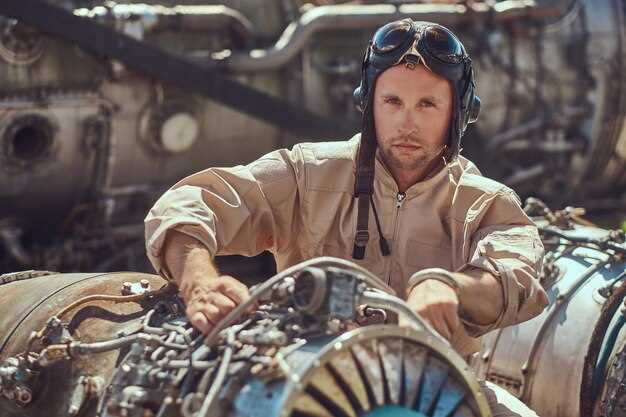Secrets Behind VW’s Powerful Racing Engines

The world of motorsport is highly competitive, and the secrets behind achieving exceptional performance in racing engines are crucial for success. Among various automobile manufacturers, VW racing engines have gained a reputation for their impressive power and reliability on the track. Understanding the intricate details of these engines not only reveals the engineering marvel behind them but also highlights the technologies and strategies that contribute to their unparalleled performance.
At the heart of VW racing engines lies a combination of innovative design and advanced engineering techniques. The quest for power drives the development of lightweight materials, enhanced aerodynamics, and finely-tuned performance components. By optimizing each element, from the turbocharging systems to the cooling mechanisms, VW has successfully crafted engines that not only produce remarkable horsepower but also maintain efficiency under extreme conditions.
Moreover, the tuning processes and performance modifications implemented by racing teams play a pivotal role in unlocking the full potential of VW engines. Factors such as fuel quality, ignition timing, and exhaust systems are meticulously adjusted to achieve that delicate balance between power and performance. Understanding these aspects provides invaluable insights into the secrets that make VW racing engines a formidable force on any track.
Understanding the Key Modifications that Boost VW Racing Engine Power
To enhance the performance of VW racing engines, several key modifications can significantly increase power output. These modifications involve optimizing components and tuning various systems for maximum efficiency and performance.
One of the primary modifications is the upgrading of the intake and exhaust systems. A performance-oriented intake manifold can help improve airflow into the engine, allowing for better combustion. Coupled with a high-flow exhaust system, these changes reduce back pressure and enhance exhaust gas evacuation, resulting in increased horsepower.
Another critical modification is the tuning of the engine’s ECU (Engine Control Unit). By recalibrating the engine’s fuel maps and ignition timing, racers can optimize performance under specific conditions. This tuning ensures that the engine runs efficiently at high RPMs while maximizing power delivery on the track.
Using performance camshafts is also essential in boosting power. These camshafts allow for increased valve lift and duration, facilitating better airflow throughout the engine cycle. This modification leads to enhanced performance, particularly in the mid and high RPM ranges, where racing engines typically operate.
Boosting the engine’s compression ratio is another effective way to increase power. Higher compression improves thermal efficiency, allowing the engine to extract more energy from each combustion cycle. However, this modification must be balanced with the fuel quality to avoid knocking.
Lastly, incorporating a turbocharger or supercharger can significantly escalate power levels. Forced induction systems compress the intake air, allowing for more air-fuel mixture to enter the engine, which substantially increases power output. Selecting the right setup based on targeted performance goals is crucial for achieving optimal results.
In summary, modifying VW racing engines through upgraded intake and exhaust systems, ECU tuning, performance camshafts, increased compression ratios, and forced induction are key strategies that can lead to significant improvements in power. Each modification should be thoughtfully considered and implemented to fully realize the potential of VW racing engines.
Optimizing Fuel Mixture and Ignition Timing for Maximum Performance

The performance of VW engines relies heavily on the precision of fuel mixture and ignition timing. By optimizing these two critical parameters, significant gains in power output can be achieved, enhancing the overall racing experience.
First, the fuel mixture needs to be carefully calibrated. A stoichiometric air-fuel ratio is ideal; however, for racing purposes, slightly rich mixtures often result in greater power at high RPMs. A well-tuned mixture not only enhances horsepower but also aids in cooling the combustion chamber, which is crucial during prolonged high-performance runs.
Adjusting the ignition timing is equally vital. The timing determines when the spark plug ignites the air-fuel mixture, significantly influencing power delivery. Advanced ignition timing can lead to more efficient combustion, producing extra power. However, excessive advancement can cause knocking, detrimental to engine longevity. Finding the optimal timing requires extensive testing to balance performance with reliability.
Combining an optimal fuel mixture with precise ignition timing creates a synergy that maximizes the engine’s power potential. In the competitive world of racing, these adjustments can mean the difference between victory and defeat.
Choosing the Right Turbocharger for Enhanced VW Racing Engine Output

When optimizing VW racing engines for increased power, selecting the appropriate turbocharger is crucial. The right turbocharger not only enhances performance but also ensures reliability and efficiency. First and foremost, assess the engine’s displacement and intended power goals to determine the suitable size of the turbocharger.
Smaller turbochargers can spool quickly, resulting in better performance at lower RPMs, which is beneficial for applications requiring rapid acceleration. However, they may limit top-end power. In contrast, larger turbochargers can produce significant boost at higher RPMs, maximizing the engine output but may lead to turbo lag during low-end power delivery.
Consider the compressor and turbine efficiency maps while selecting a turbocharger. High efficiency ensures that the engine can produce more power without excessive heat generation, which is vital during racing conditions. Additionally, the chosen turbo must match the engine’s airflow requirements–oversizing can lead to inefficiency, while undersizing may restrict power output.
Also, evaluate the installation compatibility with VW engines. Custom fabrication may be necessary for some turbochargers. Accessories such as intercoolers, exhaust systems, and wastegates must also align with the turbo’s specifications to maximize performance.
Ultimately, a well-chosen turbocharger tailored to the specific requirements of a VW racing engine can dramatically enhance power output, turning an average vehicle into a competitive racer.



